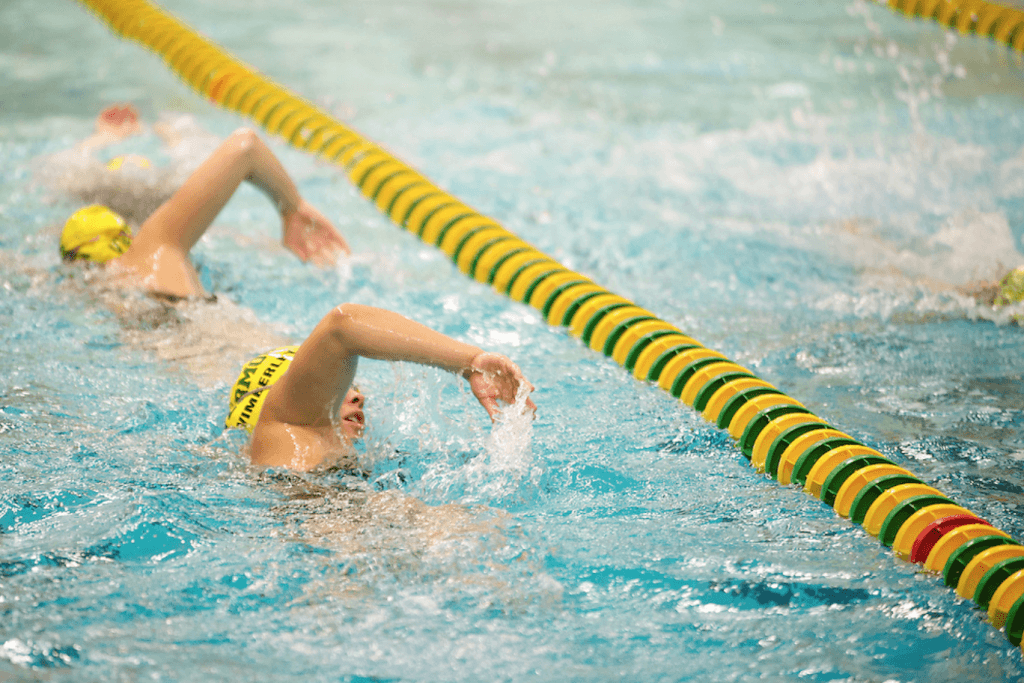Balancing the Big and Little Things in Swimming

Balancing the Big and Little Things in Swimming
By Josie Wise, Swimming World Intern
The Monday after a meet, your coach has the team huddled up to talk about some things she noticed over the weekend. She says that everyone seemed to be in pretty good shape and was able to keep up with the competition when racing down the middle of the pool. However, it seemed that team members fell behind at every turn, while the opposition pulled ahead. This led your team to have to expend extra energy to track down the competitors. Your coach says that this showed her very clearly that turns were going to have to be a focus in the upcoming practices. “Remember guys, we can train all we want, but if we don’t focus on the little things, we won’t get faster,” she chides.
In practice the next day, you decide to listen to your coach and focus exclusively on speeding up your turns. You go full speed in and out of the wall, get the appropriate amount of underwater kicks in, and make sure not to breathe on your first stroke. Then you settle into an easy stroke for the rest of the 25. The next meet comes and you feel confident your turns have improved greatly. However, when you get out after racing a 200 freestyle with nearly flawless flip turns, your time is slower than the last meet. Flustered, you asked your coach what happened. She shakes her head, “Well Jimmy, your turns were fast, but I haven’t seen you pushing yourself to 100% in our freestyle sets in practices.” You realize what happened. You thought turns were so important, that you focused too much on them. You lost sight of focusing on the big factors, like training hard.
What are the “Big Things”
The big things can almost be looked at as the easier tasks, or at least the simpler ones. Sleeping is one activity that would fit into this category. Getting enough sleep at night can often be overlooked, but according to sleep disorder specialist, Ralph Downey III, Ph.D., in an article from the Cleveland Clinic, an endurance sport like swimming is where you’ll see the largest negative effects from not getting enough sleep. It’s not difficult to go to bed instead of staring at a screen, but it is a huge factor in athletic performance.
More big things include eating well, hydration, dryland and lifting and maintaining a positive mindset. Also, as mentioned in the beginning scenario: Going to practice and pushing yourself to perform your best is important. Simply going to practice isn’t enough.
What are the “Little Things”
The little things are somewhat more complicated, but still very achievable. Just like taking turns seriously, taking drills seriously is vital. As a swimmer, I know just how easy it is to use drills as a time to relax and recover. This is a habit that would be good for any athlete to break. When coaches give drills, try to figure out why they told you to do that drill, and what it’s meant to improve. If you get to choose your drills, pick one that will help in an area you’ve been trying to work on. Small adjustments like this will you give you a slight edge over the competition.
Some other little things to consider: Asking your coach questions, keeping a practice log that you can reference, or doing dryland exercises geared toward something you know you need to make stronger. The list can be endless. It would be a good idea to try to find one new little thing to work on every week.
Finding the Balance
It’s not easy to maintain a perfect balance between the big and little things. If you see your favorite elite athlete praising a fancy biceps exercise he or she does, that doesn’t mean it’s something you need to lose sleep over to make sure you’re doing. You have to recognize that athlete also spends five hours in the pool every day, constantly drinks water, and gets a steady eight hours of sleep every night. Of course, no one is perfect, and you’ll likely find yourself focusing on something too much, or not focusing on something enough every once in a while. As long as you take a step back and reevaluate, finding your balance between the big and little things will come.
All commentaries are the opinion of the author and do not necessarily reflect the views of Swimming World Magazine nor its staff.



